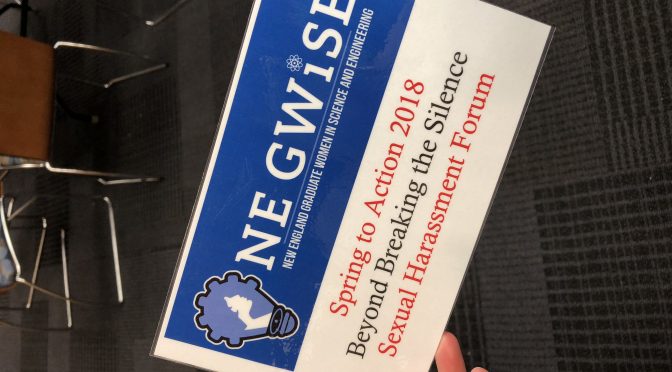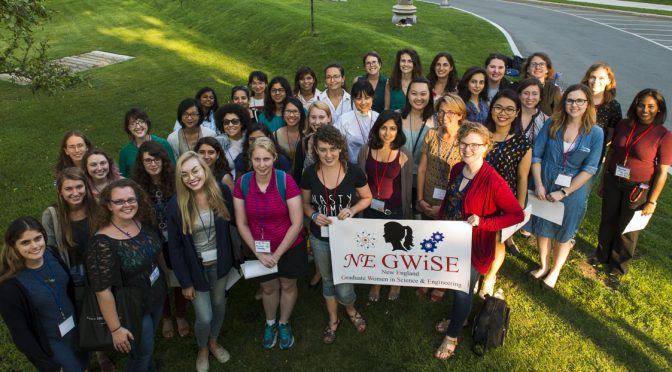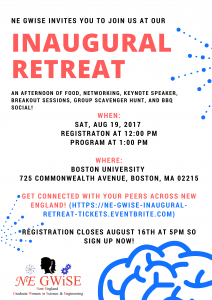Guest Post by Alyssa DiLeo (Neuro), Tufts Graduate Women in Science & Engineering (GWiSE)
Tufts was host to the first Spring to Action event organized by the newly formed New England Graduate Women in Science and Engineering (NE GWiSE). The group represents graduate women in STEM from universities across New England in advocating for greater representation and resources for women in STEM fields. Within the context of the #MeToo and #TimesUp campaign, the forum focused on sexual harassment within our scientific communities with the goal of reviewing and creating school specific policy to be presented to each school.
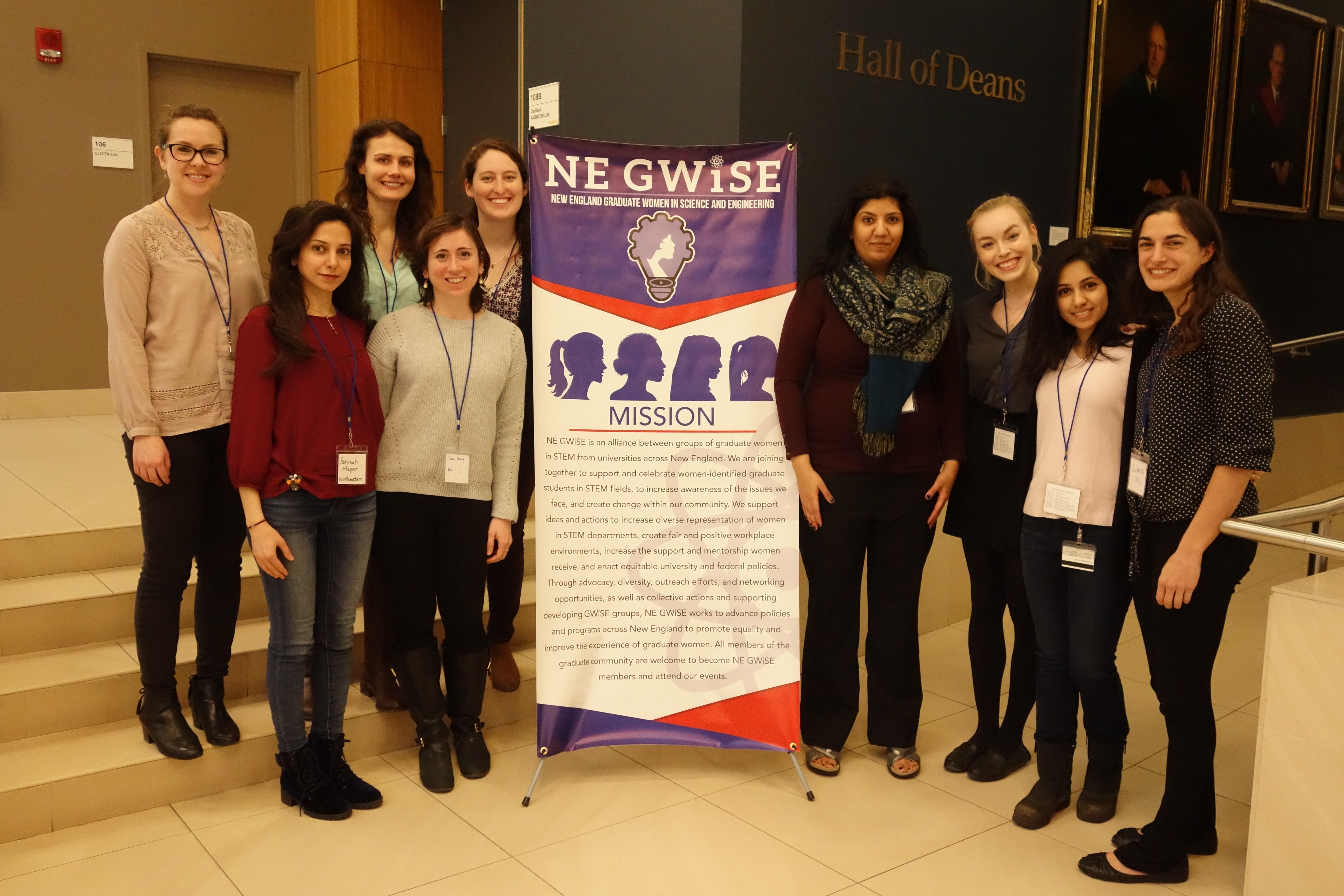
Dr. Leena Akhtar, a lecturer in Studies of Women, Gender, and Sexuality from Harvard University kicked off the event as the keynote speaker. She walked the audience through the history of sexual harassment in the workplace and the landmark court cases that ultimately provided protection against sex discrimination. The 1964 Civil Rights act banned employment discrimination on the basis of race, color, religion, national origin, and sex. But, it almost wasn’t. Apparently, the provision on sex was included to sink the bill. That’s right, protection against discrimination based on sex was considered the most unlikely and ridiculous concept to be included in the law at the time.
As the 60s and 70s went on, many court cases, mostly brought by African American women, reinforced the law and made sexual harassment and hostile work places unlawful. Liberal and radical feminist groups organized to hold the government accountable to enforcing these laws and provided resources to women suffering injustices, something that is still relevant today. However, the cultural and societal backlash to the feminist movement was brutal. Change was not welcome in historically male institutions and newspaper articles summed up the feeling over the new law through obscene political cartoons and agonized over the idea of qualified women applying for traditionally male jobs. To quote Mona Lisa Vito, “What a frickin’ nightmare!”
Fast forward to present day and women are still fighting pay disparities, sexual harassment, and gender discrimination. Power structures in academic sciences are still very much in place and institutions mostly want to protect their tenured professors who bring in grant money rather than expendable graduate students. Deviant behavior perpetrated by scientists are usually notorious and well-known within their institutions and can persist because of bystander inaction. A panel including title IX coordinators and sexual misconduct specialists from BU, Harvard, MIT, Brandeis, and Tufts answered questions from a NE GWiSE moderator and the audience inspiring conversation about policies and reporting guidelines in place at each university. NE GWiSE also provided an overview of sexual harassment policies and offices among the New England universities represented at the event. Surprisingly, many do not require sexual harassment training for faculty and staff, especially older faculty, which is an incredibly irresponsible decision that can easily be fixed.
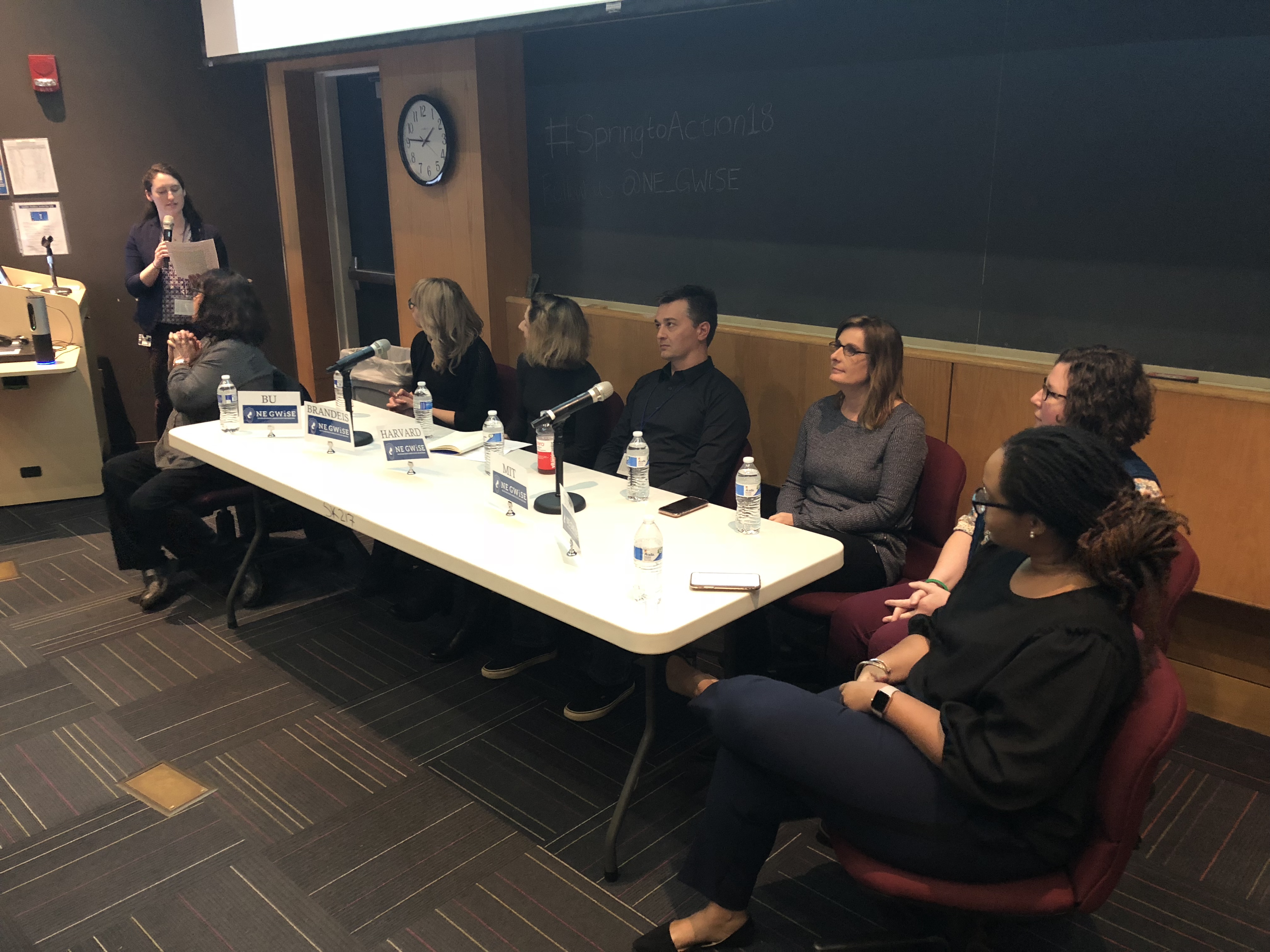
Breakout groups formed to discuss these existing policies and create a list of “asks” to be brought back to each school. Tufts will be proposing to mandate tailored Title IX training that includes mental health and cultural sensitivity modules every few years, as well as further incorporating sexual misconduct into ethics classes. In order to better inform these trainings, a climate survey will go out to students, faculty, and staff about sexual harassment and the workplace environment at Tufts.

Despite the fight laid out before us, everyone left this event with hope in their hearts and fuel to continue fighting for justice in academia. This past year we saw Nasty Women unite and march on Washington the day after the president was inaugurated. Powerful men like Harvey Weinstein, Matt Lauer, and Louie C.K are facing consequences for their inexcusable behavior and the world is taking sexual harassment allegations seriously. The conversation about sexual harassment is finally shifting from the perpetrator to the victim and focusing on what can be done to stop these behaviors rather than suggesting the victim was asking for it. These situations are reinforced by power structures and vulnerability often found in the sciences, but it’s beginning to even out as women have the support to continue their careers into higher level faculty positions. Victims of sexual harassment and gender-based violence are being lent a voice to speak out about the injustices they face within the workplace. As Dr. Leena Akhtar said, “this movement is a reckoning” and we’re just getting started.
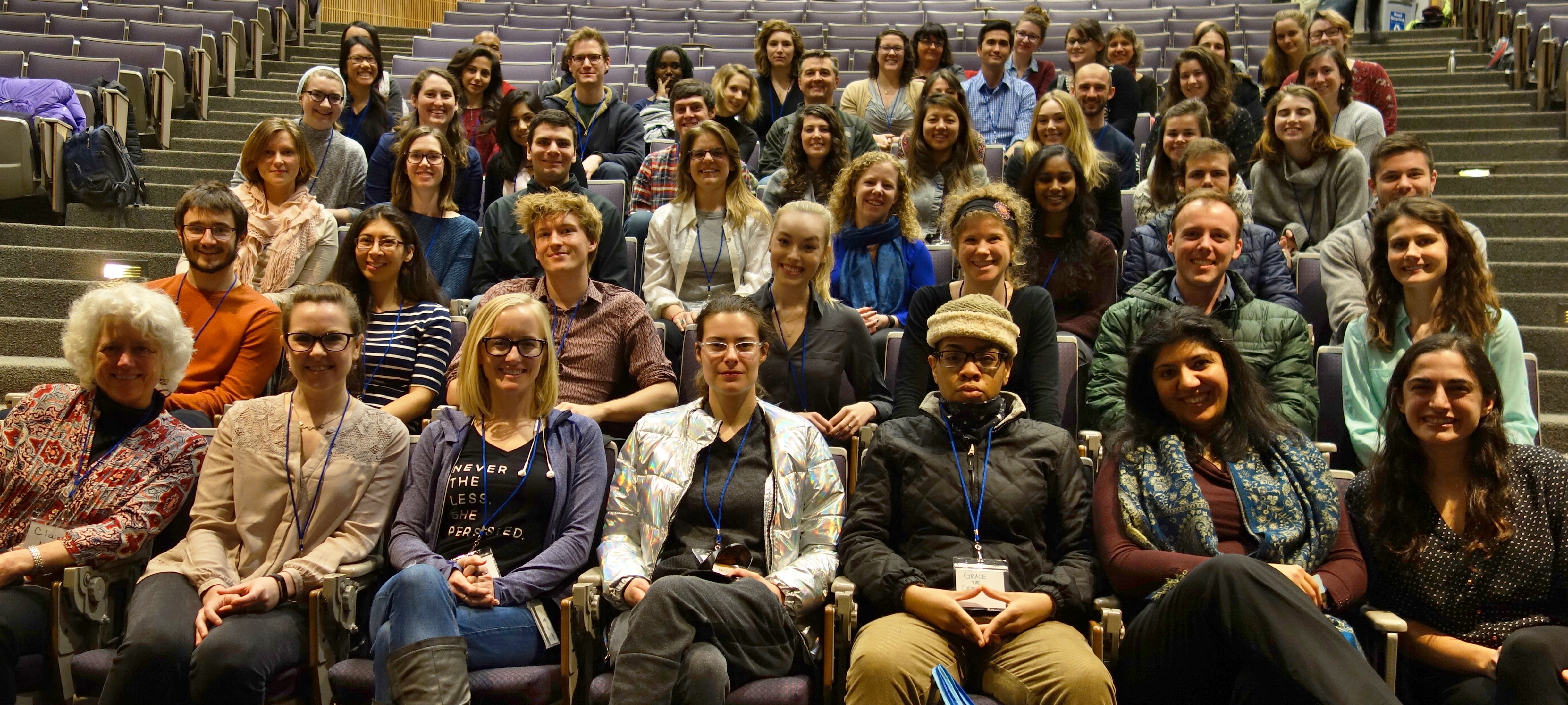
If you’re interested in getting involved at Tufts, GWiSE chapters on the Boston and Medford chapters have been established this year and welcome all members of the graduate and scientific community to attend events.

